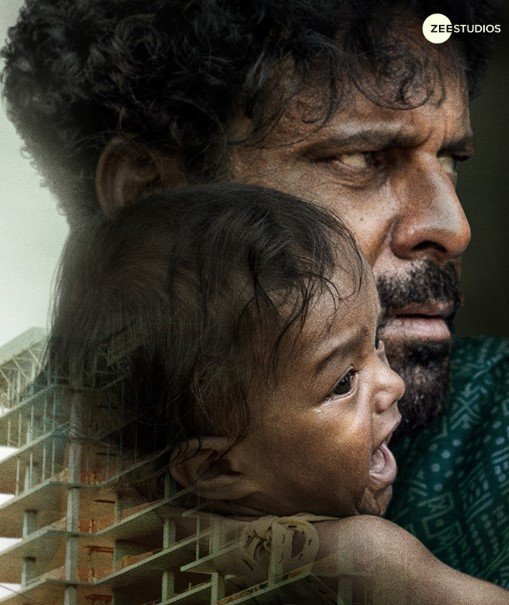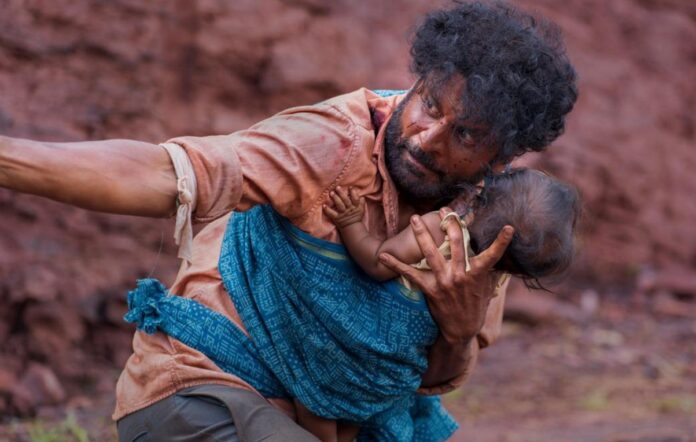Makhija’s ‘Joram’ isn’t just a movie; it’s a disquieting reflection on the dangers embedded in human greed, sans clear solutions. At its core lies Dasru (Manoj Bajpayee), a tribal migrant running with his infant daughter, fleeing a system that has tagged him unjustly.
Filmmaker Devashish Makhija, known for illuminating the trials of the marginalized, takes audiences on a gripping journey with ‘Joram’.
Key Aspect: Tearing apart emotions, the film delves into the plight of a tribal man, marked as a killer and Maoist, navigating a system stacked against him.
The film’s heartbeat throbs amidst the tumult of Pragati Nagar’s impending development, questioning its impact on those it displaces. Dasru and Vaano (Tannishtha Chatterjee), once at home in Jharkhand’s forests, now struggle as daily wage laborers in Mumbai’s concrete maze. The loss of their roots, seen in the absence of a swinging tree and melodies replaced by hums, poignantly echoes their displaced existence.
Enter Phulo Karma (Smita Tambe), a tribal politician, further entwining Dasru’s fate. The clash between political agendas, corporate interests, and tribal livelihoods forms the battleground where Dasru becomes a reluctant participant. Hunted by both sides, his desperate flight entwines with Ratnakar (Mohammed Zeeshan Ayyub), a cop reluctantly pursuing him, setting the stage for a riveting human drama.
Zoram Movie Review: Manoj Bajpayee Scales a new high in his Acting Prowess

Makhija’s brilliance lies in his visual storytelling, allowing audiences to feel Dasru’s fear through unspoken dialect and gripping camerawork. The stark visuals of ravaging cranes and a desolate tree mirror the voracious nature of human greed and corporate-driven policies. Amidst this chaos, Dasru’s daughter becomes a poignant symbol of his vanishing past, the last thread connecting him to his roots.
Manoj Bajpayee, a seasoned actor, embodies Dasru’s anguish with a fluency that speaks volumes. His silent portrayal resonates, much like Naseeruddin Shah in ‘Paar’, exuding the desperation and resilience of a father cornered by fate. Mohammed Zeeshan Ayyub complements Bajpayee, portraying a cop caught in an uncontrollable tide of events.
‘Joram‘ stands as a rare yet timely political narrative in a cinema landscape veering away from critical commentary. It showcases Dasru, an Adivasi protagonist grappling with a reality mirroring actual struggles against forced displacement and skewed development policies. Makhija doesn’t flinch from spotlighting the harsh realities—Green Hunt operations, corporate land grabs, and the façade of progress painted on obelisks.
Verdict: For those seeking profound storytelling, ‘Joram’ is a must-watch in theaters.
Makhija’s ‘Joram‘ strikes a nerve, unraveling uncomfortable truths while spotlighting the indomitable spirit of those marginalized by an unjust system. Manoj Bajpayee’s magnetic performance, coupled with Makhija’s unflinching narrative, crafts a cinematic experience that demands attention.

